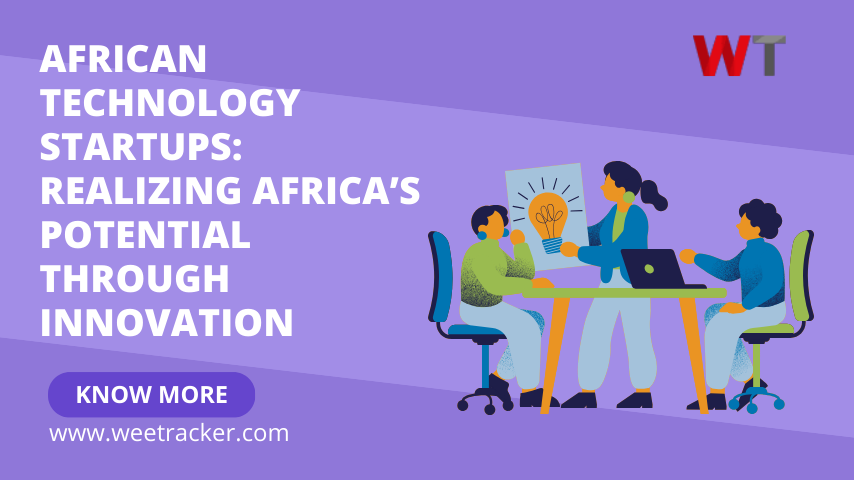The African technology ecosystem has rapidly evolved, capturing the attention of investors and entrepreneurs around the world. With a blend of innovation, resourcefulness, and determination, African technology startups are reshaping industries, driving digital transformation, and contributing to the continent’s economic growth. However, one of the biggest challenges facing these startups is securing adequate startup funding. In this blog, we’ll explore the dynamic landscape of African technology startups, the importance of startup funding in Africa, and how this sector is poised for future growth.
Understanding the African Startup Ecosystem
Africa’s startup ecosystem is diverse and rapidly growing, with technology at its core. Over the last decade, the continent has seen a surge in the number of tech startups, from fintech and healthtech to edtech and agritech. The innovation driving these startups is a direct response to the unique challenges faced by African countries, including poor infrastructure, limited access to essential services, and financial exclusion.
These startups are not just looking to create businesses—they are solving real-world problems for millions of people. For instance, M-Pesa, a mobile money service, revolutionized the way people transfer money in Kenya and other parts of East Africa. Today, such innovations continue to scale across the continent.
African Technology Startups: Key Sectors of Growth
1. Fintech: The Digital Financial Revolution
Fintech (financial technology) has emerged as one of the most significant sectors for African startups. With millions of unbanked and underbanked people across the continent, fintech startups are playing a crucial role in providing financial services to those who were previously excluded from traditional banking systems. Mobile payments, digital wallets, and microloans are just a few examples of how African tech startups are changing the financial landscape.
Companies like Flutterwave, Paystack, and Chipper Cash are not only making waves in Africa but are expanding globally. These platforms enable seamless online payments, simplify remittance processes, and help businesses in Africa scale internationally.
2. Healthtech: Innovation in Healthcare
The healthcare sector in Africa faces numerous challenges, including limited access to quality healthcare, a shortage of medical professionals, and a lack of infrastructure. Healthtech startups are addressing these issues by offering innovative solutions that improve healthcare delivery, access to medical information, and patient care.
mPharma and 50natives are among the leaders in this space, leveraging technology to deliver pharmaceuticals, provide telemedicine services, and even create digital health records to improve the overall healthcare system.
3. Edtech: Transforming Education in Africa
Edtech (educational technology) is another area where African startups are making significant strides. With a rapidly growing young population, the demand for quality education and skills development is higher than ever. Startups are stepping in to bridge the gap between traditional education systems and modern, tech-enabled learning opportunities.
Andela, which trains software engineers and connects them with global tech companies, is a prime example of how education and technology can merge to create economic opportunities for young Africans.
4. Agritech: Revolutionizing Agriculture
Agriculture is the backbone of many African economies, but it often suffers from inefficiencies and outdated practices. Agritech startups are using technology to transform agriculture, making it more sustainable, efficient, and profitable for farmers. These startups focus on everything from precision farming and drone technology to crop insurance and supply chain optimization.
Twiga Foods and Aerobotics are examples of agritech startups that are improving food security, enhancing farm productivity, and connecting farmers directly with markets through digital platforms.
The Challenge of Securing Startup Funding in Africa
While African startups are innovating and offering solutions that can change the world, one of their biggest challenges remains securing startup funding. Despite the enormous growth potential, investors have often been hesitant to invest in African markets due to perceived risks, a lack of infrastructure, and regulatory complexities.
However, the tide is slowly changing. Investors are beginning to see Africa as a land of opportunity, particularly in the tech sector. Global venture capital (VC) firms are increasingly pouring funds into African startups, recognizing the high returns that can be reaped from supporting tech entrepreneurs on the continent.
Types of Startup Funding Available in Africa
1. Angel Investors and Seed Funding
Angel investors are individuals who provide early-stage capital to startups, often in exchange for equity. For African startups, angel funding is crucial as it helps founders turn their ideas into viable businesses. Seed funding, typically provided by angel investors or early-stage venture capitalists, is often used to develop a prototype, conduct market research, or expand operations.
2. Venture Capital (VC)
Venture capital is another primary source of funding for African startups, especially those that have proven their business model or have an existing customer base. VC firms invest larger amounts of money into high-growth startups with the potential to scale rapidly. Over the past decade, several African startups have secured VC funding from firms such as Sequoia Capital, Accel, and Partech Ventures.
3. Government and Developmental Funding
In some African countries, government programs and international organizations provide funding to promote innovation and entrepreneurship. For example, initiatives like the African Development Bank’s Innovation Fund or The African Union’s Programme for Infrastructure Development offer financial support to startups that contribute to the continent’s economic growth.
4. Crowdfunding
In recent years, crowdfunding has become an increasingly popular way for African startups to raise money. Platforms like GoFundMe and Kickstarter allow entrepreneurs to tap into a global network of small investors who believe in their ideas. This is particularly beneficial for startups that may not have access to traditional funding sources.
How African Startups Can Attract Funding
1. Clear and Scalable Business Models
To attract funding, African startups must have a clear business model that demonstrates the growth potential. Investors are looking for startups with scalable solutions that can grow quickly and sustainably. Market research and a strong value proposition are essential to show potential investors that the startup addresses a significant market need.
2. Local and Global Networks
Building a robust network of local and international investors can also help startups secure funding. African entrepreneurs need to connect with angel investors, venture capitalists, and accelerators who are active in their sector. Additionally, participating in startup competitions and pitch events can provide valuable exposure and connections to investors.
3. A Solid Team
Having a skilled and passionate team behind a startup is crucial. Investors are not only betting on the business idea but also the people running it. Startups that can show they have a team with the expertise, dedication, and experience to scale the business are more likely to attract funding.
4. Leverage Strategic Partnerships
Partnerships with other businesses, nonprofits, or governments can help African startups gain credibility and access to funding. For example, tech startups collaborating with established global companies can benefit from their market knowledge and financial support.
The Future of African Technology Startups
As the African startup ecosystem continues to mature, the future looks bright for African technology startups. Increased access to startup funding, greater investor interest, and a growing number of tech hubs across the continent are all contributing to the growth of this sector.
1. A More Robust Funding Ecosystem
With the rising number of African tech startups, funding sources will diversify. As local venture capital firms become more established, more investors will be willing to take risks on promising startups. Global partnerships will play a significant role in raising funds, opening doors for startups to scale and become global players.
2. Focus on Sustainability and Impact
Investors are also increasingly looking for startups that focus on social impact and sustainability. As African countries face challenges such as climate change, urbanization, and poverty, impact-driven startups that focus on solving these issues will receive more attention from both local and international investors.
Conclusion
African technology startups are leading the way in innovation, addressing some of the continent’s most pressing challenges. While startup funding Africa has historically been a challenge, the tides are changing as both local and global investors recognize the immense potential for growth in the African tech space. With the right support, resources, and opportunities, African tech startups will continue to thrive, making significant contributions to the continent’s economic development and global technological advancement.




